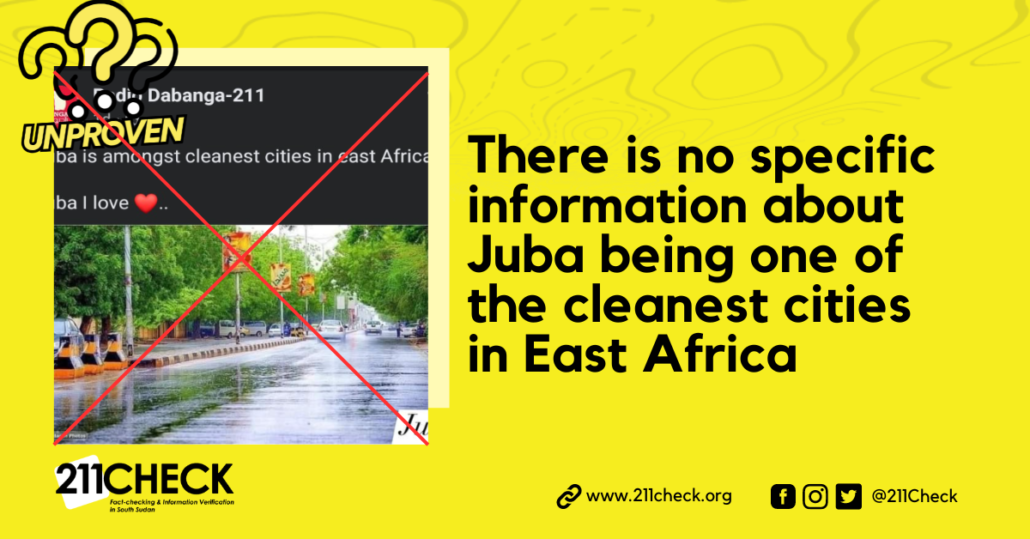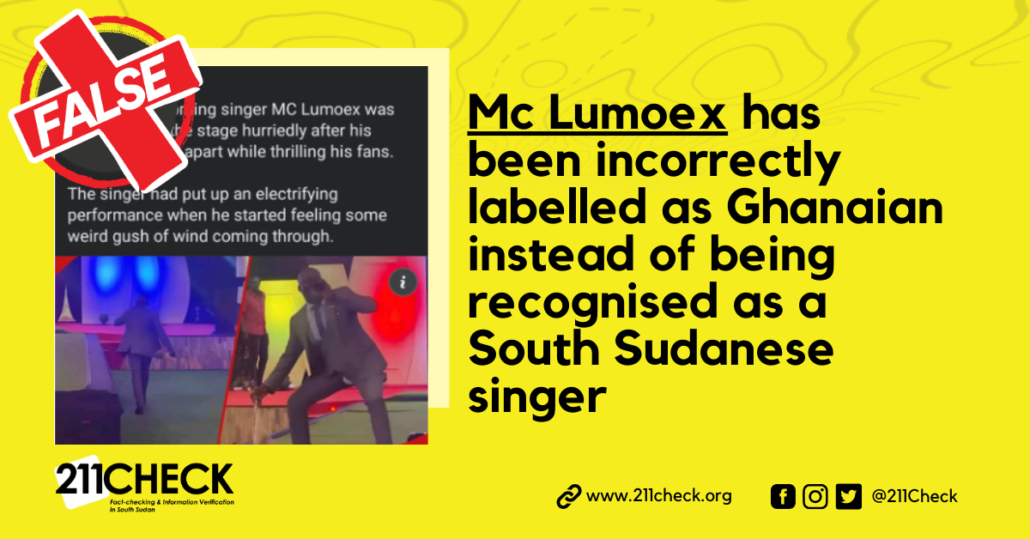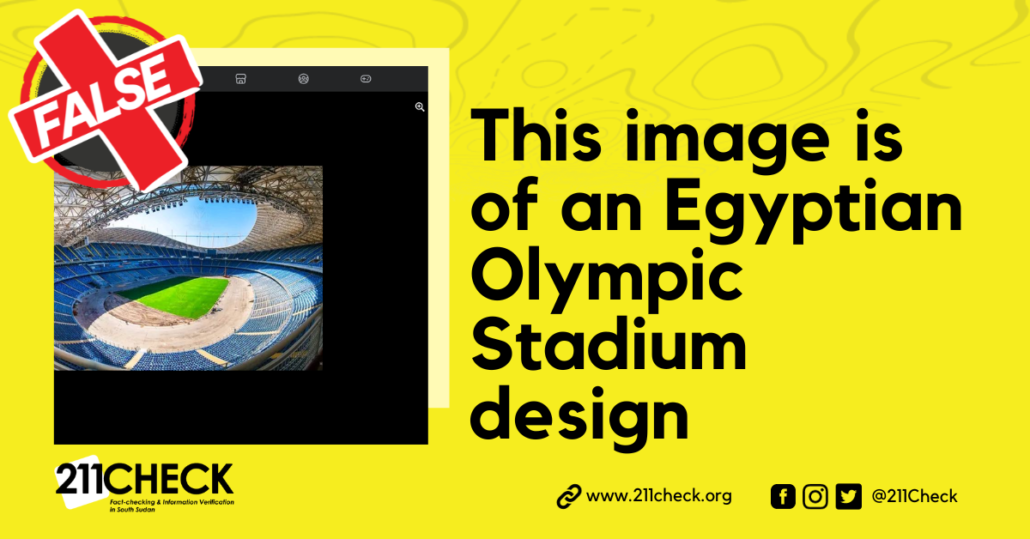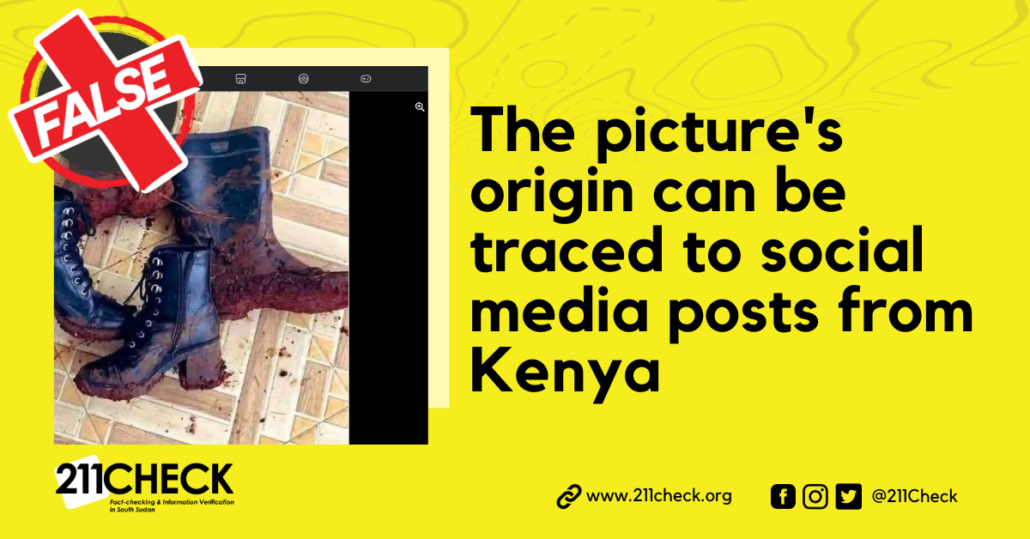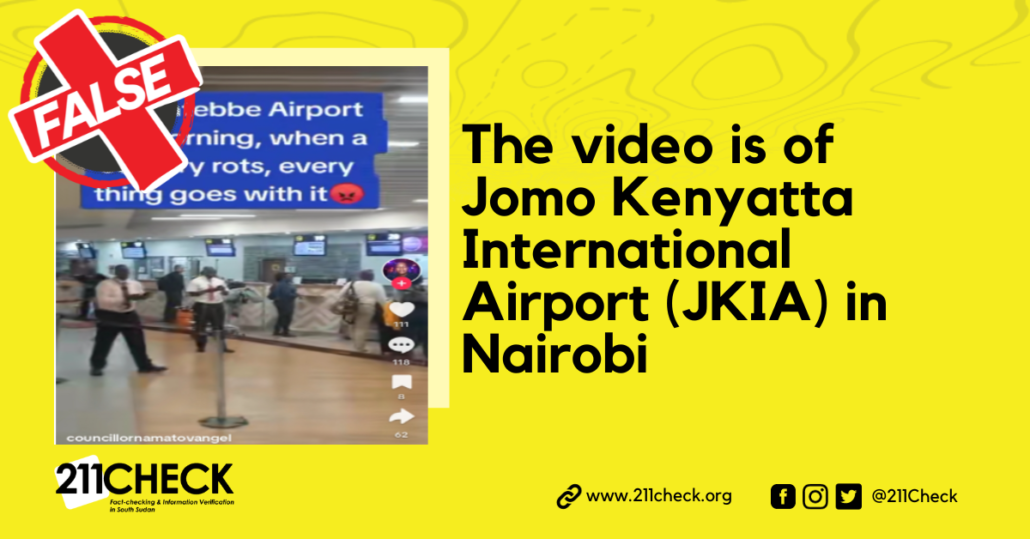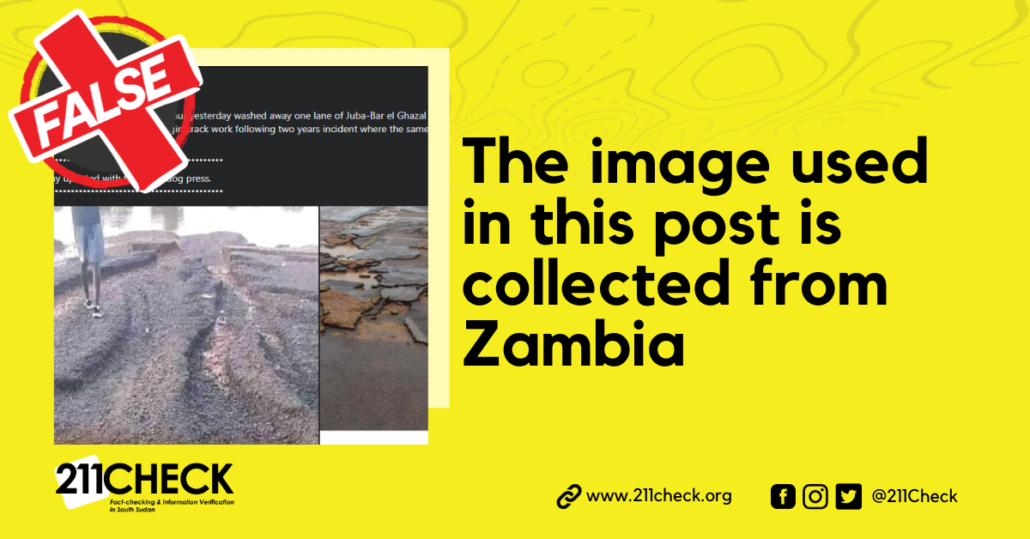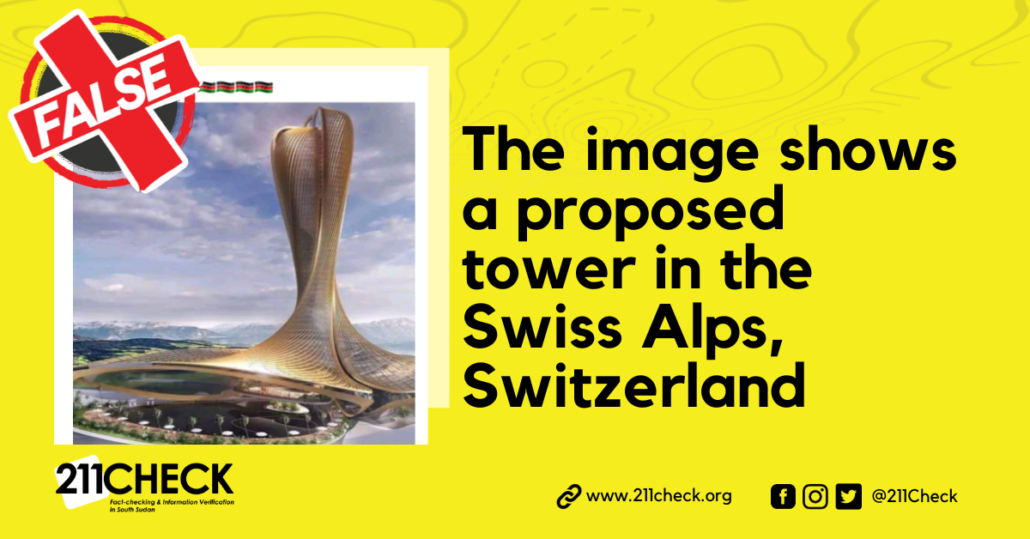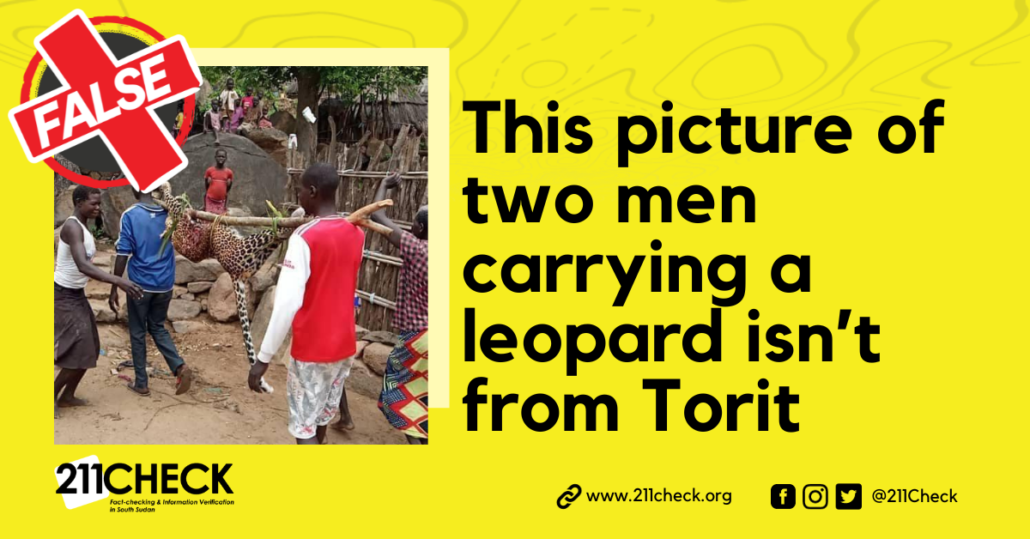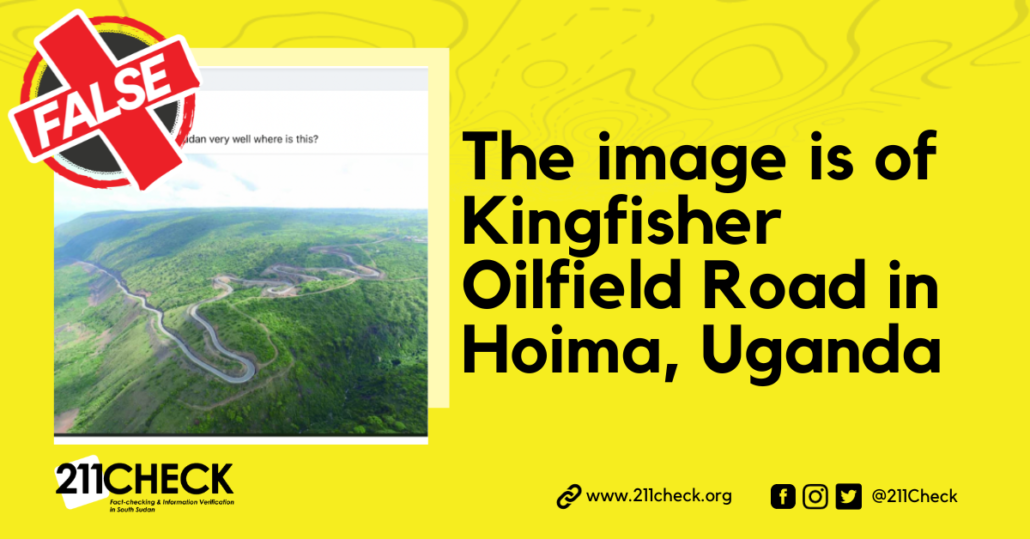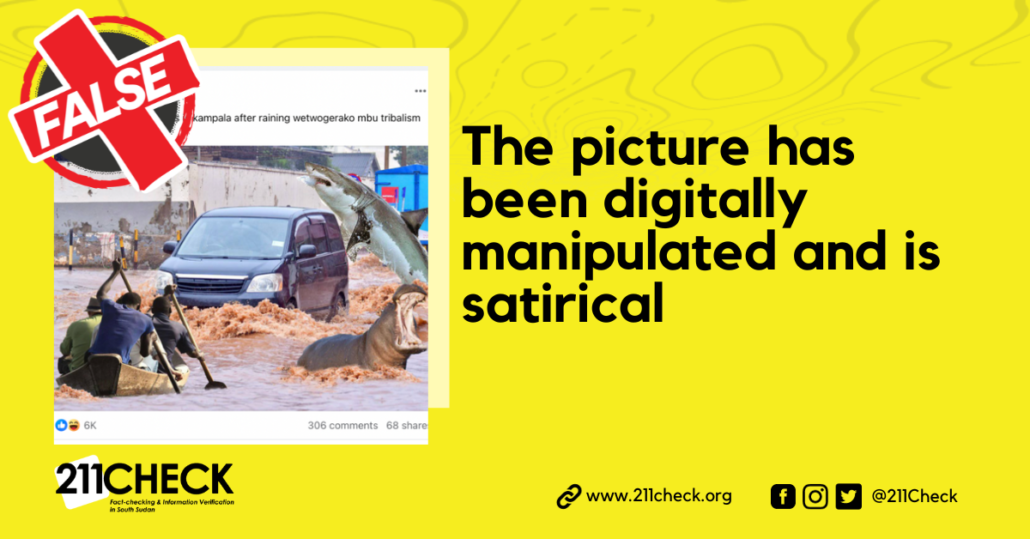Fact-check: Juba is not one of the top five cleanest cities in East Africa
There is no specific information about Juba being one of the cleanest cities in East Africa.
Writer: Christopher Luate Obede
A Facebook post published by Radio Dabanga-211, featuring an image of a wet street, claiming that Juba is amongst the cleanest cities in East Africa, is unproven.
Radio Dabanga-211 is a Facebook page with over 8.2K likes and 18K followers.
“Juba is amongst cleanest cities in East Africa. Juba, I love,” the post shared on January 13, 2024, briefly reads.
Screenshot of the Facebook post by Radio Dabanga-211
Claim Verification:
A Google keyword search for “Clean cities in East Africa” by 211 Check finds that the cleanest cities in East Africa, ranked by Top Ten Uganda, are Kigali, the largest capital city of Rwanda, and Nairobi, the capital of Kenya. Kigali has also been ranked by FURTHER AFRICA as the cleanest city on the African continent in 2022.
Google search for “Juba” only returns a result with an article published by LIKIS MEDIA with a lawmaker claiming that Juba is the world’s dirtiest city.
Image verification using Google Lens reverse image search returns several results. The image captioned is from Sudan in Photos, a Pinterest account that describes the image as “Rainy morning in Khartoum.”
Bajnews first published the image on its website on July 21, 2018. It is a street in Madani, the capital of Al Jazirah State in east-central Sudan.
Conclusion:
211 Check finds the claim that Juba is among the cleanest cities in East Africa unproven. There is no specific information about Juba being one of the cleanest cities in East Africa.
A publication under 211 Check’s ‘Fact-Check for a Pay’ Initiative with support from the International Fact-Checking Network through the BUILD grant.
To ensure accuracy and transparency, we at 211 Check welcome corrections from our readers. If you spot an error in this article, please request a correction using this form. Our team will review your request and make the necessary corrections immediately, if any.
It’s vital to fight misinformation and disinformation in the media by avoiding fake news. Don’t share content you’re uncertain about. False information can harm and mislead people, risking their lives—Fact-check before sharing. For more details, visit https://211check.org/ or message us on WhatsApp at +211 921 350 435. #FactsMatter

